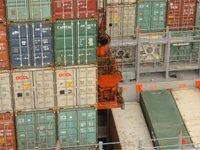Piracy - is Cargo Lost?

In August 2008, the "Bunga Melati Dua" was on a voyage from Malaysia to Rotterdam carrying a cargo of bio diesel when it was hijacked by pirates off the horn of Africa. The ship was taken, along with its crew and cargo to Somali waters. About a month after the seizure, the pirates began negotiations with the ship owners for a ransom to release the captured ship, the crew and the cargo.
The cargo owners had arranged insurance covering, inter alia, loss arising from piracy and theft. They tendered a notice of abandonment to the cargo insurers, the aim of which was to treat the cargo as an actual total loss with cargo owners relinquishing all rights to the cargo. The cargo owners maintained that the cargo had become an actual total loss under section 57 (1) Marine Insurance Act 1906, arguing they were irretrievably deprived of the cargo. Section 57 (1) of the Act provides:
"Where the subject-matter is destroyed, or so damaged as to cease to be a thing of the kind insured, or when the assured is irretrievably deprived thereof, there is an actual total loss"
As an alternative they argued that the cargo had become a constructive total loss under section 60(1) of the Act because, inter alia, a total loss appeared to be unavoidable. Section 60 (1) of the Act states provides:
"Subject to any express provision in the policy, there is a constructive total loss where the subject-matter insured is reasonably abandoned on account of its actual total loss appearing to be unavoidable, or because it could not be preserved from actual total loss without an expenditure which would exceed its value when the expenditure had been incurred."
On this basis the cargo owners claimed in excess of US$ 7 million from their cargo insurers. The cargo insurers refused to accept the notice of abandonment, maintaining the cargo was likely to be released when the hijacking was resolved and thus no total loss had or would occur.
Before the English High Court it was common ground that the theft of the cargo and seizure by pirates were insured risks. The primary issue though was whether the claimant had been irretrievably deprived of the cargo at the time when the notice of abandonment had been served.
The claimants supported their case by reference to Dean v Hornby (1854), concerning the capture by pirates who, by the nature of having seised property, exercised dominion over a ship or cargo and, thus, that the property seised is an actual total loss even though it is later recovered.
In the case of the “Bunga Melati Dua”, ransom negotiations were still ongoing.
The claimants did not dispute that there was a possibility, perhaps even a likelihood, that the ship and cargo would be released following payment of a ransom. However, whilst accepting that a ransom payment would not be illegal, cargo owners argued that the court should not take the ransom negotiations into consideration because payments to hijackers would encourage further acts of piracy and be contrary to public policy (in English law).
Admiralty Judge Mr. Justice David Steel made considerable reference to the general situation of piracy in Somalia both in relation to "Bunga Melati Dua" as well as other vessel seizures, taking into consideration past cases as well as market intelligence and the defendants’ expert evidence. Steel J. reported that the trend showed that the property was likely to be released, probably within short order, after a ransom payment.
In fact the "Bunga Melati Dua", her crew and cargo were released less than 6 weeks after the initial seizure of the vessel (and only 11 days after the claimants had submitted their notice of abandonment).
In relation to the ransom, Mr Justice Steel noted that ransom payments were not illegal under English law. So far as being contrary to public policy argument, he referred to Fender v St John Mildmay (1938) quoting Lord Atkin: "the doctrine should only be invoked in clear cases in which the harm to the public is substantially incontestable, and does not depend upon the idiosyncratic inferences of a few judicial minds".
The court was "wholly unpersuaded" that payment of ransom was contrary to public policy. Although ransom payments made further hijackings more likely, there were few other alternatives and if the payment of ransom was contrary to public policy the well-established Kidnap and Ransom policies sold in the London insurance market would, in effect, be unenforceable.
As a consequence the claimants failed in their claim for actual and constructive total loss. To succeed a claimant needs to show they were "irretrievably deprived" of the cargo. In deciding against cargo claimants, Steel J. concluded the cargo owners were not irretrievably deprived of the cargo because there was reasonable hope that the cargo could be recovered. Further, although the cargo owners lost possession they retained title to their property and the fact that negotiations started so soon after the seisure of the vessel and cargo supported the proposition that the cargo was neither irretrievably lost nor that a total loss was inevitable.
Dean v Hornby case was not applicable: Although viewed in isolation that decision might be seen to support the claimants’ argument the post-seisure events in that case were protracted and complicated, and the ship was never restored to her owners, nor did they have the opportunity of regaining possession (as was the case for the "Bunga Melati Dua").
The judge commented as follows: "The short answer, in my judgment, is that an assured is not irretrievably deprived of property if it is legally and physically possible to recover it (and even if such recovery can only be achieved by disproportionate effort and expense)."
Update - September 2010
The court of appeal decision is reviewed in Piracy - is Cargo Lost? (Part II)


